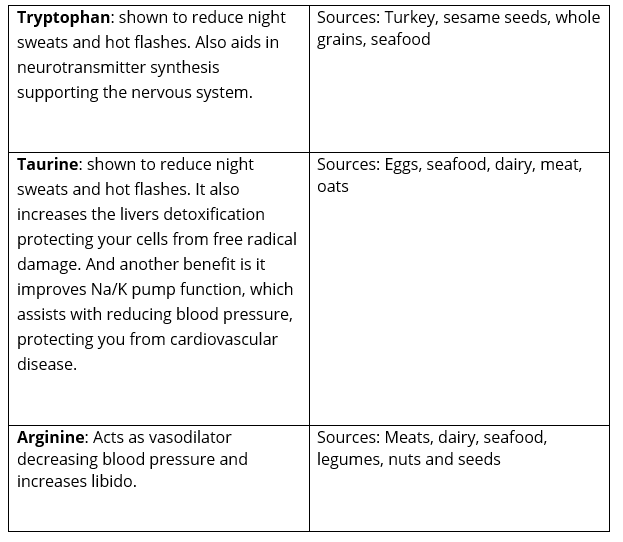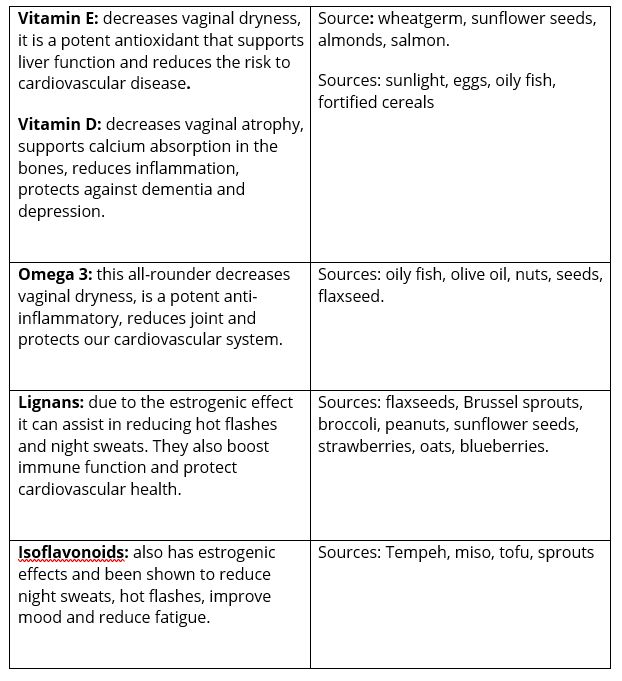Nutrients for Menopause and Healthy Aging
What food can you eat to assist with perimenopause and menopause symptoms, as well as remaining vibrant and healthy as you age?
As we age and head into perimenopause or menopause the processes in our bodies change, resulting in different nutritional needs from our diet. To reduced symptoms of menopause and to ensure we stay strong and healthy, we require more of some critical nutrients, e.g. calcium, omega 3, vitamin D, protein, to name a few.
Research has shown that the inclusion of specific amino acids can assist with perimenopausal and menopausal symptoms, including hot flashes, vaginal atrophy, night sweats and mood swings.
Other nutrients that assist with reducing symptoms and help us to stay healthy and vibrant as we age include:
Mood disorders and the feeling of irritability is a significant symptom affecting menopausal women. The nutrients listed below support the production of feel-good hormones and reduce cardiovascular risks due to their use in our methylation cycle.
Folate: Meats, spinach, green leafy vegetables, asparagus, beans, egg, fortified. bread
Vitamin B6: Whole grains, oats, banana, beef, seeds.
Vitamin B12: Red meat, fish, poultry, milk, eggs, fortified cereals, whole grains.
Reduced oestrogen levels also increase women's risk of osteoporosis as oestrogen is required to activate osteoblasts; the cells that produce bone.
Calcium: Dairy, sardines, dark leafy greens
Boron: apples, beans, potatoes
Copper: Seafood, nuts, leafy green vegetables, dark chocolate
Iron: Beef, dried fruit, nuts seeds, dark leafy green vegetables
Magnesium: Leafy green vegetables, nuts, seeds, beans, whole grains.
Potassium: Leafy green vegetables, root vegetables, vine vegetables
Vitamin C: Kiwi fruit, citrus fruit, capsicum, berries, broccoli.
Plus vitamin D and omega 3.
The nutrient requirements to stay strong and healthy may change as we age and head into menopause, but the basic principles of healthy eating do not. Make vegetables the central part of your meals, eat a rainbow, including whole grains, eat lean protein, have oily fish twice per week, including healthy fats, include healthy dairy, eat probiotic-rich foods and get some sunshine.
Taking supplements to reach your nutrient requirements seems easy but ensure you get expert advice before taking any nutritional supplements, as natural supplements can interact with medication and not all may be suitable for unique situation.
Book a consult today for supplement advice and a full dietary review.


